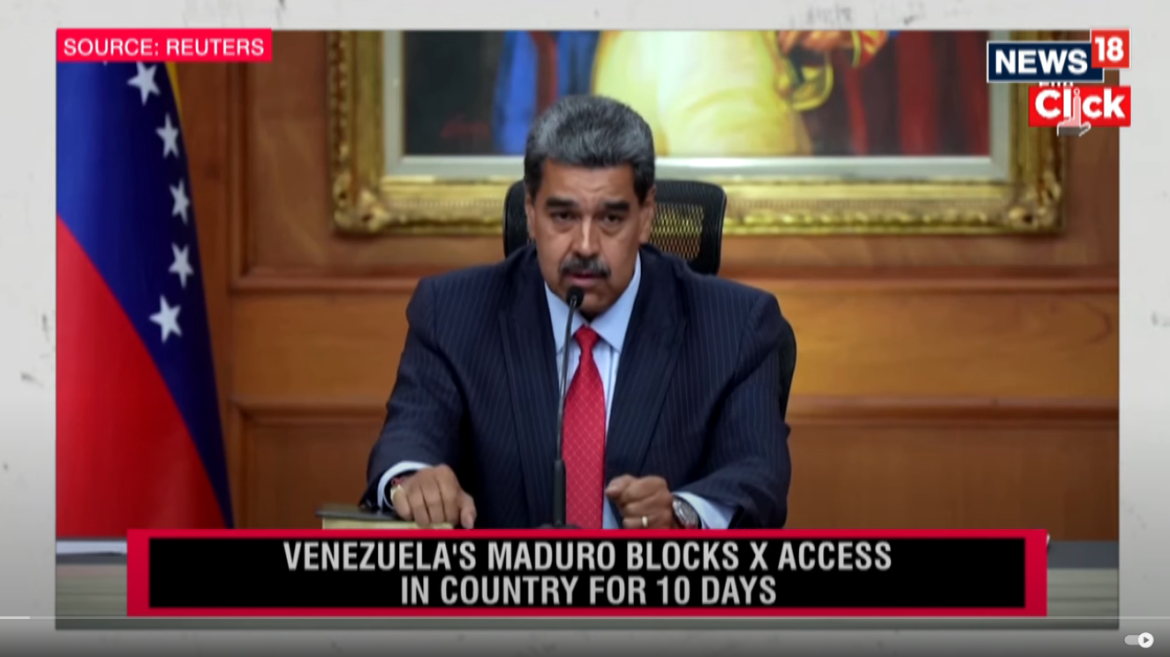Venezuela’s President Nicolas Maduro is moving to ban the social media platform X, formerly known as Twitter, for ten days following a public dispute with the platform’s owner, Elon Musk. The clash between the two figures stems from the controversial Venezuelan election, which Maduro claims to have won but the United States, along with other international observers, assert was rigged.
The proposed ban is the latest escalation in a heated exchange between Maduro and Musk. The Venezuelan president has accused Musk of using his platform to incite “hatred, fascism, and civil war” within the country. Maduro’s administration alleges that X has been instrumental in spreading disinformation and fomenting unrest, which they claim undermines Venezuela’s sovereignty and stability.
The dispute began after Musk publicly accused Maduro of “major election fraud” in a series of posts on X, where he criticized the legitimacy of Maduro’s victory. Musk’s comments have further fueled the already tense political situation in Venezuela, where allegations of corruption and electoral fraud have long been a point of contention between the government and its opponents.
Maduro’s call for a temporary ban on X is being justified by his administration as a necessary step to prevent the platform from being used to destabilize the country. “We will not allow foreign interests, especially those driven by people like Elon Musk, to incite violence and discord among our citizens,” Maduro said in a recent televised address.
The move has sparked concerns about censorship and the restriction of free speech in Venezuela, where the government has a history of cracking down on media outlets and social media platforms that criticize its policies. Human rights organizations have condemned the proposed ban, arguing that it is a direct violation of Venezuelans’ rights to access information and express their opinions freely.
Elon Musk has responded to the proposed ban with defiance, stating that he will not be intimidated by Maduro’s threats. “X is a platform for free expression, and we will continue to support the voices of those who seek truth and transparency, no matter where they are,” Musk said in a statement.
As the situation develops, the proposed ban on X raises significant questions about the future of social media in Venezuela and the role of international tech companies in politically volatile regions. The outcome of this dispute could have far-reaching implications for how governments interact with global platforms and the extent to which they can control the flow of information within their borders.



